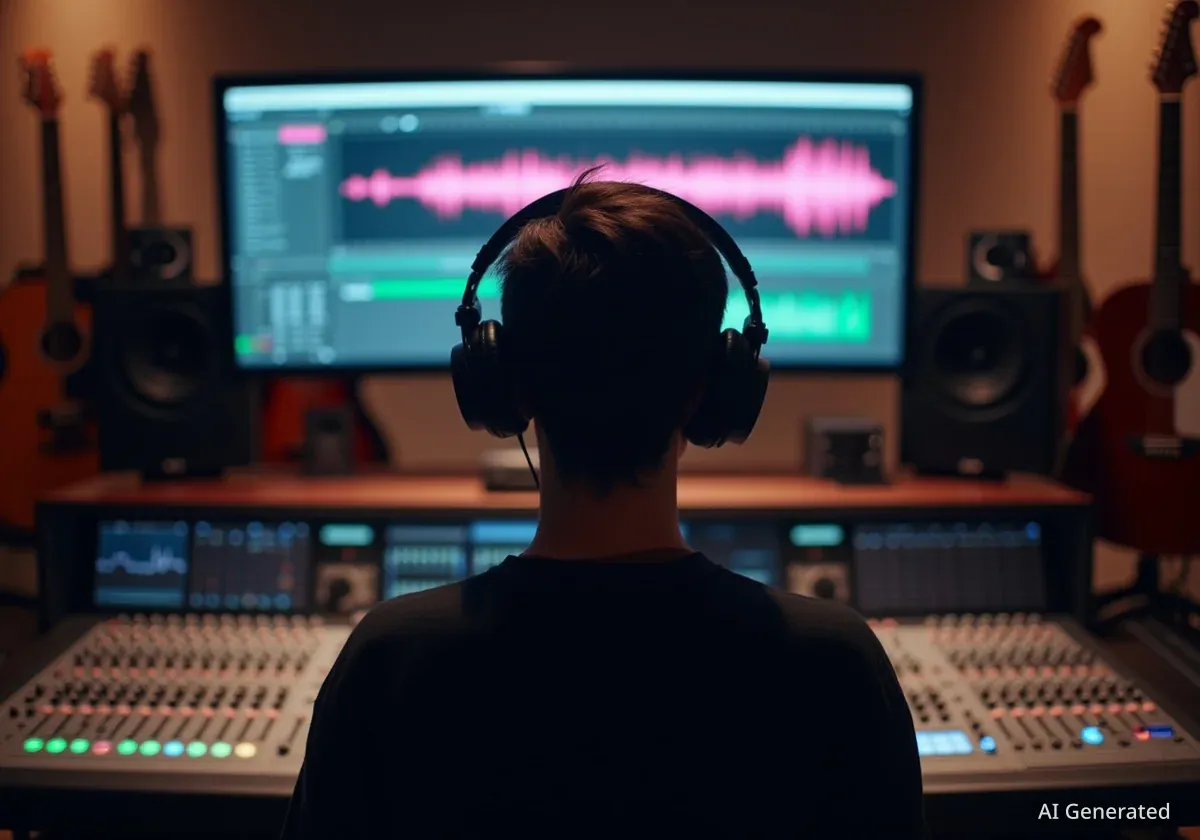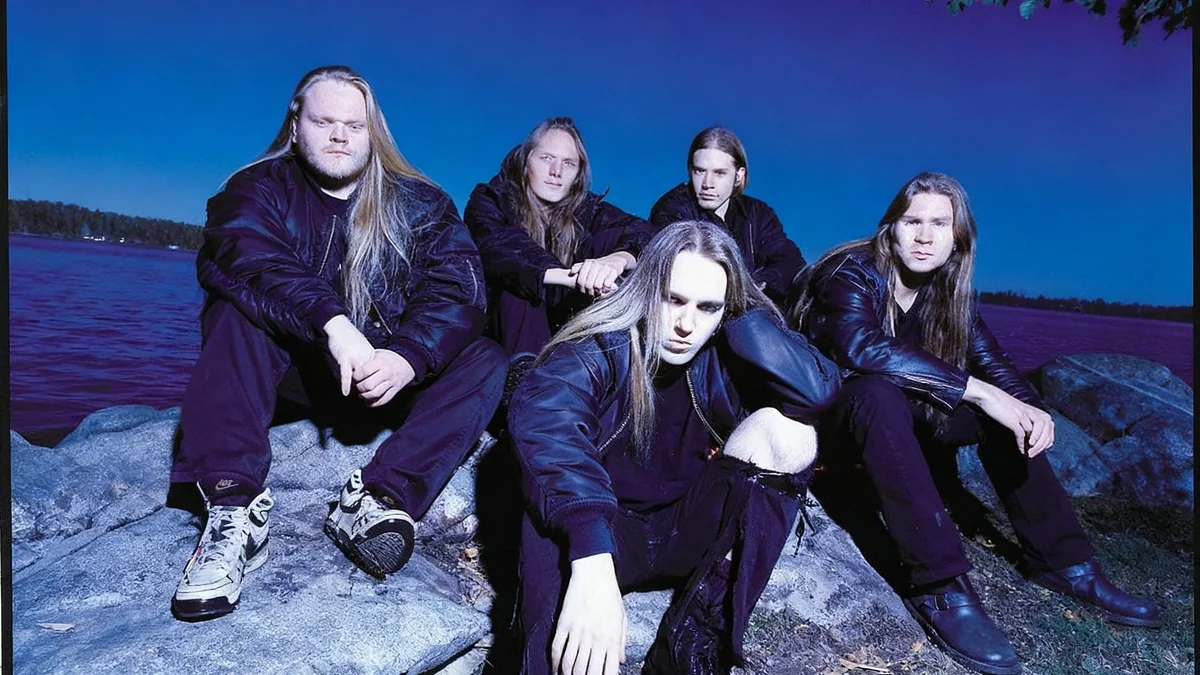Jeff Tweedy, the acclaimed frontman of Wilco, has released his latest solo project, a 30-track triple album titled 'Twilight Override'. The extensive collection arrived on Friday, showcasing Tweedy's continued prolific output and unique artistic vision. Recorded at The Loft, Wilco's Chicago studio, the album features contributions from his sons, Spencer and Sammy, alongside other collaborators.
Key Takeaways
- Jeff Tweedy's new solo triple album, 'Twilight Override', features 30 original tracks.
- The album was recorded at Wilco's Chicago studio, The Loft.
- Tweedy's sons, Spencer and Sammy, contributed to the recording process.
- The album explores themes of past, present, and future, with a focus on human connection.
- Tweedy emphasizes the value of hard work and music as a coping mechanism.
Tweedy's Productive Decade and New Album Scope
Jeff Tweedy, 58, maintains a remarkable pace in the music industry. In the last decade alone, he has released five albums and one EP with Wilco. Additionally, he has produced five solo albums and two documentary scores. This period also saw him write three books, launch a Substack, and tour consistently. His newest release, 'Twilight Override', stands as his fourth album of original solo songs. It is notable for its length, surpassing the combined duration of his previous three solo efforts.
Despite the album's size, Tweedy assures that quality has not been sacrificed. The 30 tracks demonstrate a wide range of musical styles while maintaining a cohesive sound. The recording process at The Loft involved his children, Spencer and Sammy, along with several friends. This collaborative environment contributed to the album's eclectic yet unified feel.
Album Statistics
- Tracks: 30
- Format: Triple Album
- Recording Location: The Loft, Chicago
- Key Collaborators: Sons Spencer and Sammy Tweedy
The Creation of a Triple Album
The decision to create a triple album was intentional from the outset. Tweedy explained that 'Twilight Override' was conceived and executed with this specific format in mind. He noted that simply reducing the tracklist to 10 or 12 more accessible songs would not convey the full message he intended.
"I don't think this record says the same thing if I just whittled it down to the 10 most accessible tunes or the most immediate-sounding tunes; it really didn't say the same thing that I wanted to say, to me," Tweedy stated.
He views a triple album as an invitation for listeners to embark on a significant musical journey. This format allows for a deeper immersion into the artistic experience. Tweedy acknowledged that some long albums can be self-indulgent, but he believes his collection is carefully curated.
Sequencing and Thematic Structure
The sequencing of 30 songs is a complex task. Tweedy and his team spent two years working on the album, listening to countless permutations of track orders. He explained that certain songs naturally found their place together, completing each other's ideas.
A guiding principle for the album's organization was the concept of "past, present, future." Each of the three discs loosely represents one of these temporal themes. Tweedy noted that these concepts are not rigid and often blend into each other, reflecting psychological and temporal realities.
Sonic variety was also a key consideration. Tweedy incorporated changes in tempo and instrumentation to keep listeners engaged. He described adding elements like surprising song endings, unexpected drum fills, and even atonal sections to create a more dynamic listening experience. These choices were deliberate to ensure the album felt fresh throughout its length.
Background on Jeff Tweedy
Jeff Tweedy is an American musician, songwriter, and record producer. He is best known as the frontman of the alternative rock band Wilco. Before Wilco, he was a member of the influential alternative country band Uncle Tupelo. Tweedy has also released several solo albums and written multiple books, demonstrating a broad creative output across various mediums.
Voice, Insecurity, and Artistic Growth
Tweedy has previously spoken about his insecurities regarding his singing voice. However, in 'Twilight Override', his voice is prominent and clear in the mixes. The production style is naturalistic and unadorned, allowing his vocals and lyrics to be easily understood.
He shared that he made peace with his singing voice a long time ago. He feels his voice is improving technically and that he has learned to use his limitations as a strength for communication. This comfort with his vocal performance is evident in the album's directness.
However, his speaking voice is a different matter. He admitted he would be uncomfortable listening to interviews or podcasts featuring himself. This contrast highlights his specific comfort with his artistic voice versus his everyday speaking voice.
One track, "Parking Lot," features spoken word, which Tweedy found challenging but ultimately effective. "That was just kind of shocking to me, in an uncomfortable way, to hear me just do spoken word, but I think that it's effective. And I shouldn't be comfortable all the time," he explained.
The Value of Labor and Creative Drive
Tweedy's remarkable productivity stems from several motivations. He values a strong work ethic, influenced by his father, who worked on the railroad for 46 years. He sees making music not as an escape from work, but as a way to engage with something meaningful and enjoyable every day.
"I like going to work. My dad [went] to work someplace that most of the time he hated, but he went to work every day. And I never really understood the idea that being a musician or being an artist meant you don't go to work every day," Tweedy reflected.
Music also serves as a crucial coping mechanism for him. He finds solace and connection in listening to music, both his own and others'. The positive feedback he receives from listeners, who find comfort in his songs, further motivates him.
At its highest level, Tweedy believes his work fosters real connection and empathy in a world that sometimes lacks these qualities. He sees live performances as increasingly vital, especially in current times of division, as they create a shared cultural space.
Tweedy's Creative Output (Past Decade)
- Wilco Albums: 5 (plus 1 EP)
- Solo Albums: 5
- Documentary Scores: 2
- Books Written: 3
- Other Activities: Substack, constant touring, producing for other artists
The Alt-Country Legacy and New Voices
Tweedy is often regarded as a pioneer of alt-country, a genre that has seen a resurgence with artists like Waxahatchee, Wednesday, and MJ Lenderman. He commented on this new wave, suggesting that current circumstances might be driving its popularity.
He believes people are gravitating towards a sense of community and shared stories. Younger artists, he noted, may be less interested in cultivating mystique and more focused on genuine connection. "It's a lot more sloppy than that and a lot more bighearted and open right now because I think that everybody needs that," Tweedy observed.
While proud of his influence, Tweedy emphasized that he and Uncle Tupelo did not invent the genre. They drew inspiration from earlier artists who merged punk aesthetics with country music, such as the Flying Burrito Brothers. He highlighted the complex history of country music, noting that its origins involved "weirdos" before it became associated with a more conservative image. He also discussed how American culture tends to appropriate and homogenize diverse forms of expression.
Themes of Love and Loss
The album subtly explores themes of fear and loss, even amidst expressions of security. Lines from songs like "Ain't It a Shame" ("I am welcome, I am loved, and I am free / But I have reached for something I can't keep") and "Caught Up in the Past" ("I hear people in love / With a love that just can't last") suggest a recurring concern with the transient nature of love and life.
When asked about these themes, Tweedy described them as universal human fears. He linked them to the stress and pain inherent in living a full life, where being open to hurt is also a sign of deep engagement. He suggested that the album's overarching message is that a well-lived life, though stressful, is ultimately something one cannot get enough of.
Despite being surrounded by loved ones, particularly during the album's recording, these existential fears remain a natural part of the human experience for Tweedy. This vulnerability adds a layer of depth to 'Twilight Override', making it a reflective and emotionally resonant work.




